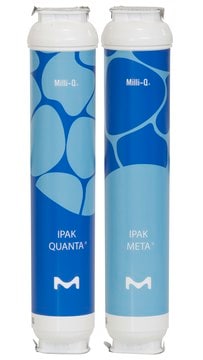W255602
γ-Hexalactone
≥98%, FCC, FG
Synonyme(s) :
γ-Caprolactone, γ-Ethyl-γ-butyrolactone
About This Item
Produits recommandés
Source biologique
synthetic
Niveau de qualité
Qualité
FG
Fragrance grade
Halal
Kosher
Agence
follows IFRA guidelines
meets purity specifications of JECFA
Conformité réglementaire
EU Regulation 1223/2009
EU Regulation 1334/2008 & 178/2002
FCC
FDA 21 CFR 117
FDA 21 CFR 172.515
Pureté
≥98%
Indice de réfraction
n20/D 1.439 (lit.)
Point d'ébullition
219 °C (lit.)
Densité
1.023 g/mL at 25 °C (lit.)
Application(s)
flavors and fragrances
Documentation
see Safety & Documentation for available documents
Allergène alimentaire
no known allergens
Allergène de parfum
no known allergens
Propriétés organoleptiques
coconut; coumarin; creamy; sweet
Chaîne SMILES
CCC1CCC(=O)O1
InChI
1S/C6H10O2/c1-2-5-3-4-6(7)8-5/h5H,2-4H2,1H3
Clé InChI
JBFHTYHTHYHCDJ-UHFFFAOYSA-N
Informations sur le gène
human ... CYP1A2(1544)
Vous recherchez des produits similaires ? Visite Guide de comparaison des produits
Catégories apparentées
Application
- RIFM fragrance ingredient safety assessment, γ-hexalactone, CAS Registry Number 695-06-7.: This article provides a comprehensive safety assessment of γ-Hexalactone, a key fragrance ingredient, supporting its safe use under current practices and concentration levels in consumer products (Api et al., 2022).
- Production of Hydroxy Fatty Acids, Precursors of γ-Hexalactone, Contributes to the Characteristic Sweet Aroma of Beef.: This study highlights the biochemical pathways involved in the formation of γ-Hexalactone through the production of hydroxy fatty acids, significantly impacting the flavor profile of beef (Ueda et al., 2022).
Mention d'avertissement
Warning
Mentions de danger
Conseils de prudence
Classification des risques
Eye Irrit. 2
Code de la classe de stockage
10 - Combustible liquids
Classe de danger pour l'eau (WGK)
WGK 2
Point d'éclair (°F)
208.4 °F - closed cup
Point d'éclair (°C)
98 °C - closed cup
Équipement de protection individuelle
Eyeshields, Gloves, type ABEK (EN14387) respirator filter
Faites votre choix parmi les versions les plus récentes :
Déjà en possession de ce produit ?
Retrouvez la documentation relative aux produits que vous avez récemment achetés dans la Bibliothèque de documents.
Les clients ont également consulté
Notre équipe de scientifiques dispose d'une expérience dans tous les secteurs de la recherche, notamment en sciences de la vie, science des matériaux, synthèse chimique, chromatographie, analyse et dans de nombreux autres domaines..
Contacter notre Service technique















